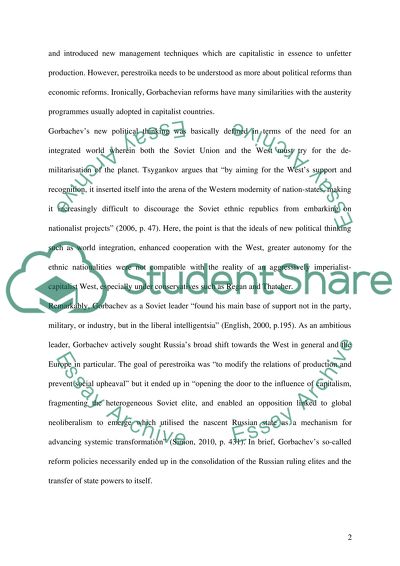Cite this document
(“What did Gorbachev mean by the new political thinking in foreign Essay”, n.d.)
Retrieved de https://studentshare.org/politics/1416911-what-did-gorbachev-mean-by-the-new-political-thinking-in-foreign-policy-was-it-compatible-with-marxism-leninism
Retrieved de https://studentshare.org/politics/1416911-what-did-gorbachev-mean-by-the-new-political-thinking-in-foreign-policy-was-it-compatible-with-marxism-leninism
(What Did Gorbachev Mean by the New Political Thinking in Foreign Essay)
https://studentshare.org/politics/1416911-what-did-gorbachev-mean-by-the-new-political-thinking-in-foreign-policy-was-it-compatible-with-marxism-leninism.
https://studentshare.org/politics/1416911-what-did-gorbachev-mean-by-the-new-political-thinking-in-foreign-policy-was-it-compatible-with-marxism-leninism.
“What Did Gorbachev Mean by the New Political Thinking in Foreign Essay”, n.d. https://studentshare.org/politics/1416911-what-did-gorbachev-mean-by-the-new-political-thinking-in-foreign-policy-was-it-compatible-with-marxism-leninism.


